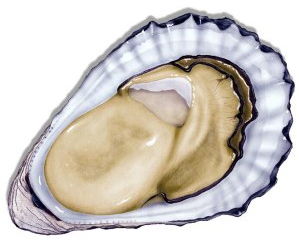 the Sunshine Coast together with scientists from Macquarie University, USC, the NSW Department of Primary Industries and the Sydney Institute of Marine Science, have formed a consortium to sequence the entire genome of the oyster, Saccostrea glomerata - The commercial farming of which represents NSW largest aquaculture industry, producing approximately half of the edible oysters sold across the nation.
the Sunshine Coast together with scientists from Macquarie University, USC, the NSW Department of Primary Industries and the Sydney Institute of Marine Science, have formed a consortium to sequence the entire genome of the oyster, Saccostrea glomerata - The commercial farming of which represents NSW largest aquaculture industry, producing approximately half of the edible oysters sold across the nation.According to Macquarie University Professor in Marine Science, David Raftos, the research project marks one of the first times that the complete genome of a native Australian animal has been decoded.
Raftos says that the Sydney rock oysters, which can be found as far north as the Sunshine Coast, are crucial to the sustainability of estuaries and rivers along Australia’s east coast as they anchored the ecology of many coastal ecosystems.
“In often hostile environments, oyster beds provide refuges for a broad range of other species, and oysters are an important prey item for fish and crabs,” said Raftos.
“The ability of Sydney rock oysters to respond to environmental change will become increasingly important to the sustainability of Australia’s estuarine ecosystems, particularly on the highly urbanised eastern seaboard.”
Abigail Elizur, USC Professor in Aquaculture Biotechnology said that the project aims to build knowledge about the ecologically and economically vital oyster.
“By sequencing its complete genome, we will develop a vast genetic resource that can be used to test crucial questions such as the ability of oysters to respond to environmental stress, as well as understand its reproductive cues and requirements,” she said.
“It will also help us with the discovery of genes controlling beneficial traits, such as resilience to environmental contamination and disease resistance.”
Principal Research Scientist at the NSW Department of Primary Industries, Wayne O’Connor said that the team expects the sequencing to take around a year to complete, and from there they will be able to assess how the research can be applied practically.





